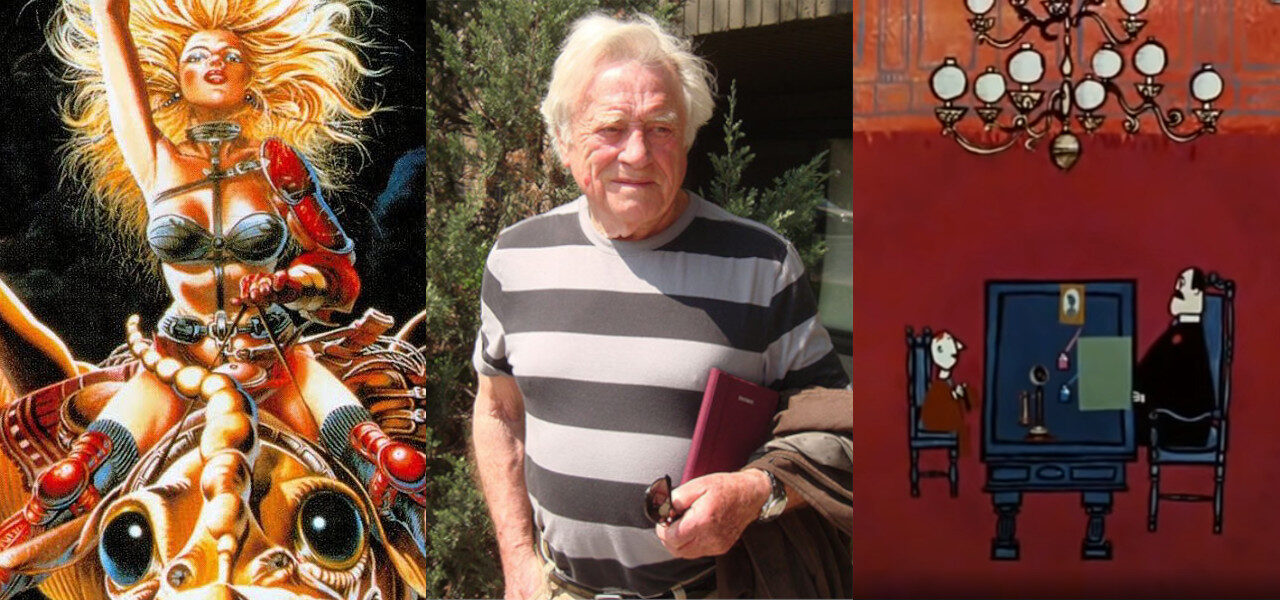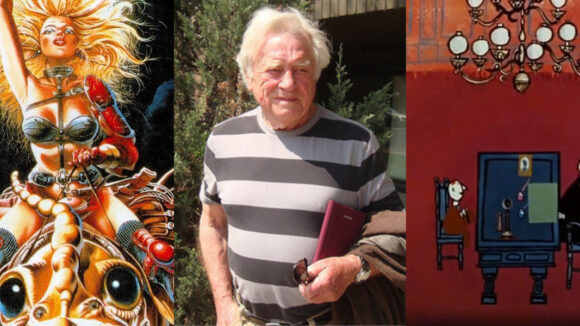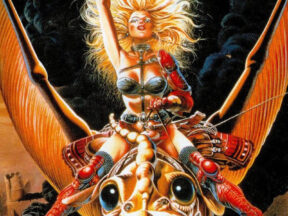

Gerald Potterton, ‘Heavy Metal’ Director, Dies At 91
Gerald Potterton, an Oscar and Emmy-nominated filmmaker who worked on the first British animated feature, Animal Farm, and directed the cult classic Heavy Metal, died on the evening of Tuesday, August 23, at the age of 91.
“The National Film Board of Canada (NFB) is saddened to learn of the death of filmmaker Gerald Potterton (1931–2022), who died at the Brome-Missisquoi-Perkins Hospital in Cowansville, Quebec,” reads the NFB release which broke the sad news. No cause of death was mentioned.
Potterton was born in London on March 8, 1931. He attended Hammersmith Art School and his entry into animation came in 1951 when he got a job working on Halas and Batchelor’s Animal Farm, released in 1954 as Britain’s first animated feature.
In 1954, Potterton emigrated to Canada and joined the NFB, where he spent much of the following decade-plus.
In a recent Cartoon Brew profile of Potterton, Ross Anderson explained the filmmaker’s wider goals at that early stage of his career:
Potterton had ambitions to write and direct his own films and co-founded a cooperative that helped London-based animators with their personal projects. They called themselves the Grasshopper Group and included animators Bob Godfrey and Norman McLaren, who was starting to make waves at the National Film Board of Canada (NFB) with his Oscar-winning short Neighbours. Potterton co-directed his own short at that time, Two’s Company (1953), using the pixilation method.
The 1960s was Potterton’s breakout decade. Two of his shorts, My Financial Career (1962) and Christmas Cracker (1964), were nominated for Oscars and he wrote and directed The Railrodder (1964), starring Buster Keaton. In 1968, he did layout work for the Yellow Submarine’s “Liverpool” sequence.
During the 1970s, Potterton produced three animated films based on stories by Oscar Wilde. One of them, The Selfish Giant (1972), received an Oscar nomination. During that decade, Potterton also worked with Richard Williams on Raggedy Ann & Andy: A Musical Adventure (1977) as associate director.
But it was in 1981 that Potterton directed his career-defining work in the form of the cult classic adult sci-fi anthology film Heavy Metal.
Potterton stayed busy over the ensuing decades, and never really retired. In the mid-1980s he worked on children’s animated series such as Rubik, the Amazing Cube and The Wizard of Oz. In 1991, he created and produced The Smoggies, a television series that promoted environmental responsibility. Interestingly, Potterton said that was the first time he ever made “real money” from a production.
Anderson’s Potterton profile finishes with a now-bittersweet ending which describes how the filmmaker kept busy even into his 90s.
He lives on a farm about an hour east of Montreal and only 15 miles, as the crow flies, from the U.S. border. He keeps busy with his art, grows garlic, and flies radio-controlled model airplanes of all sizes and vintages.
He paints, often with the theme of vintage military planes, and is creating a narrated storybook for distribution on the internet. He is also working towards developing Scouse the Mouse into a feature-length animated film.
Sadly, the animation world has now been deprived of those future Potterton projects.
Pictured at top: “Heavy Metal,” Gerald Potterton in 2016 – Photo by Anna Frodesiak, “My Financial Career”

.png)
